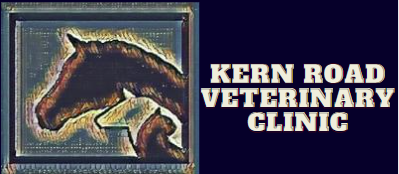Dental health is incredibly important to your dog’s overall health. Did you know that dental
disease can lead to other complications like heart disease, kidney disease, and liver disease?
Your dog’s teeth should be checked at their appointment at least yearly to see if there are any
concerns, but you should also get them checked earlier if you have any concerns at home such
as bad breath, changes in eating, pain around the mouth, swelling around the mouth, abnormal
or discolored drool, obvious fractured or loose teeth, or any other dental concerns.
Sometimes your dog may not allow us to get a complete look in their mouth at their exam. This
can be due to pain or sensitivity, and some dogs simply do not like having their mouths
examined. This means that we cannot always get a complete idea of overall dental health until
we schedule a dental cleaning.
What is involved in a dental cleaning?
We place all our patients under anesthesia for dental procedures. In doing so we are able to
perform a more thorough exam, obtain radiographs (x-rays) of the teeth, thoroughly clean and
polish teeth, and remove any diseased teeth. General anesthesia allows us to address any oral
concerns appropriately as well as provide a complete and thorough examination of the entire
mouth. While we know that anesthesia can be intimidating, we perform screening bloodwork
and a thorough physical exam prior to the procedure to make sure that we can take steps to
make the procedure as safe as possible.
Why do we take dental radiographs (x-rays)?
Dental x-rays allow us to see what is going on with teeth below the surface. We can evaluate
the overall health of teeth as well as look for signs of disease that may not be visible on a visual exam. Even if we do not expect or find any abnormalities, having a baseline of normal dental x-
rays is helpful if there are concerns in the future.
How do we clean your pet’s teeth?
We use an ultrasonic scaler and other tools that look very similar to the ones you see in your
own dentist office! At the end we polish the teeth to help protect them, just like your dentist.
What if teeth need to be removed?
Teeth can require removal for any number of reasons. Sometimes the teeth are diseased-
fractured, abscessed, or otherwise damaged. Sometimes teeth require removal because they are causing other problems- retained baby teeth, extra teeth, or in some cases of misalignment
of the jaw. Extractions are very common and dogs recover quite well. If your dog requires
extractions we will make certain that they have appropriate pain control and will send home with
you information about what to watch for and how to feed your dog during recovery.
How often does my dog need a dental?
This is highly variable. Routine dentals are recommended for all breeds, but some breeds and
even some individual dogs are predisposed to dental disease. This is why annual exams are so
important!
What if my dog needs advanced dental care?
While we can perform the majority of routine dental procedures here at our clinic, including
extractions, there are some procedures we would recommend taking your dog to a specialist for.
If you have any questions or concerns about your dog needing advanced care feel free to ask
during their exam!
What can I do at home?
At home you can work on brushing your dog’s teeth. There are toothbrushes of all varieties made for dogs, so find the one that works best for you! When brushing teeth make sure to use adog specific toothpaste as human toothpaste is not appropriate for them. In addition, there are
also supplements, treats, and foods that can help with overall dental health:
Here is a link to the dental care foods/treats that are recommended – look for the VOHC seal of
approval: https://vohc.org/accepted-products/
Have questions or concerns about your dog’s dental health? Schedule an appointment today!
